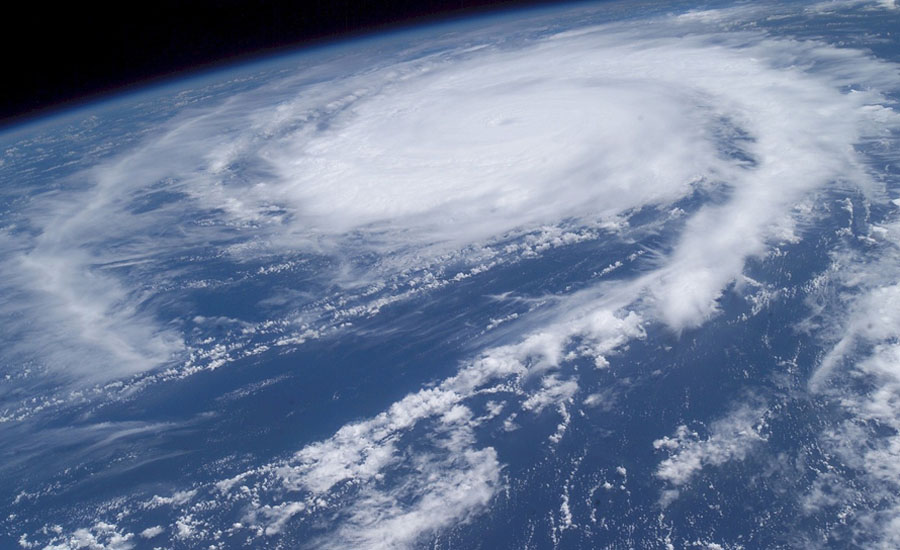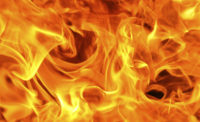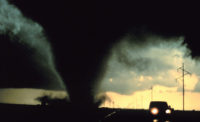Excessive rain caused by Hurricane Harvey was a key factor in the fire and subsequent hazmat release at the Arkema chemical plant in Crosby, Texas, according to the U.S. Chemical Safety Board (CSB), which has released its final investigation report into the August 31, 2017 incident.
The report notes that in the days leading up to the incident, an “unprecedented amount” of rain fell at the plant due to Hurricane Harvey, causing equipment to flood and fail. As a result, chemicals stored at the plant decomposed and burned, releasing fumes and smoke into the air.
Extreme weather poses special hazards
CSB Chairperson Vanessa Allen Sutherland said, “Our investigation found that there is a significant lack of guidance in planning for flooding or other severe weather events. Based on other government reports, we know that there is a greater likelihood of more severe weather across the country. As we prepare for this year’s hurricane season, it is critical that industry better understand the safety hazards posed by extreme weather events.”
The Arkema chemical plant manufactures and distributes organic peroxides used to produce consumer goods such as solid surface countertops and polystyrene cups and plates. Some of the organic peroxides produced at the plant must be kept below 32 degrees Fahrenheit to prevent them from decomposing and catching fire. Under normal operation, the organic peroxides are stored in low temperature warehouses and shipped in refrigerated trailers.
How it happened
Extensive flooding caused by heavy rainfall from Hurricane Harvey caused the plant to lose power and backup power to all of the low temperature warehouses. Workers at the Arkema facility moved the organic peroxides from the warehouses to the refrigerated trailers, which were then relocated to a high elevation area of the plant. Three of those trailers, however, were unable to be moved and eventually flooded and failed. With refrigeration on those trailers lost, there was nothing to stop the chemicals inside from heating up and catching fire
All of Arkema’s employees were evacuated from the facility and more than 200 residents living nearby the facility were evacuated and could not return home for a week. Twenty-one people sought medical attention from reported exposures to the fumes and smoke released into the air.
What industry should do
In its final report, the CSB called for more robust industry guidance to help hazardous chemical facilities better prepare for extreme weather events, like flooding, so that similar incidents can be avoided. The key lessons for companies within areas that are susceptible to extreme weather include:
- Facilities should perform an analysis to determine susceptibility to potential extreme natural events– such as flooding, earthquakes, and high winds.
- When conductinganalyses of process hazards, or facility siting, companies should evaluate the potential risk of extreme weather events and the adequacy of safeguards.
- When evaluating and mitigating the risk from extreme weather events facilities should strive to apply a sufficiently conservative risk management approach.
- If flooding is the risk, facilities must ensure that critical safeguards and equipment are not susceptible to failure by a common cause and that independent layers of protection are available in the event of high water levels.
The CSB also released a new safety video about the incident at Arkema titled "Caught in the Storm: Extreme Weather Hazards." It is available to view on CSB.gov and YouTube.
Extreme weather increasing
CSB Chairperson Vanessa Allen Sutherland said, “Considering that extreme weather events are likely to increase in number and severity, the chemical industry must be prepared for worst case scenarios at their facilities. We cannot stop the storms, but working together, we can mitigate the damage and avoid a future catastrophic incident.”
The CSB is an independent, non-regulatory federal agency whose mission is to drive chemical safety change through independent investigations to protect people and the environment. The agency’s board members are appointed by the President and confirmed by the Senate. CSB investigations look into all aspects of chemical incidents, including physical causes such as equipment failure as well as inadequacies in regulations, industry standards, and safety management systems. For more information, contact public@csb.gov.




